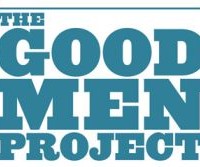As I write, our government—that’s Congress, that’s the President—is on the verge of deciding how badly to hurt the sick, the poor and the aged.
I never thought I’d write a sentence like that.
But then, I have never witnessed such institutionalized cruelty before. If current views prevail, we will effectively criminalize misfortune—get fired, get majorly sick, lose your home, and you will fall right through the shredded safety net into poverty, misery and premature death. This, in the richest country in the world.
This is not about politics. This is about morality. And it makes me furious.
Which accomplishes nothing.
♦◊♦
I’ve read Thich Nhat Hanh’s Being Peace before—it’s his most popular book and his most accessible—but I picked it up again when I realized I was redlining rage. A dozen years ago, I interviewed TNH, and just to be in his presence is calming. To read him produces the same effect:
Life is filled with suffering, but it is also filled with many wonders, like the blue sky, the sunshine, the eyes of a baby. To suffer is not enough. We must also be in touch with the wonders of life. They are within us all around us, everywhere, any time.
If we are not happy, if we are not peaceful, we cannot share peace and happiness with others, even those we love, those who live under the same roof. If we are peaceful, if we are happy, we can smile and blossom like a flower, and everyone in our family, our entire society, will benefit from our peace. Do we need to make a special effort to enjoy the beauty of the blue sky? Do we have to practice to be able to enjoy it? No, we just enjoy it.
♦◊♦
I can hear the skeptical and cynical say: “This is Buddhism Lite.” True. But it is also Buddhism Essential. And it’s very useful for those of us who aren’t up to Ultimate Buddhism. (To buy the book from Amazon, click here. For the Kindle edition, click here.)
♦◊♦
TNH delivers several messages here, and all of them are more practical than spiritual. Meditation, for example, is not a way to bliss out looking at a flower, it’s to become “aware of what is going on.” There is a section on the way monks resolve disputes that, if tried in government and business, might make for small solutions and reduce rancor. And then there are stories that illustrate his points, like this one, about the danger of what we like to call knowledge:
Soon afterwards, his real son escaped from the bandits and found his way home. He arrived at his father’s new cottage at midnight and knocked at the door. The father, still grieving asked: “Who is it?” The child answered, it is me, papa, open the door!” But in his agitated state of mind, convinced his son was dead, the father thought that some young boy was making fun of him. He shouted: “Go away,” and continued to cry. After some time, the child left.
Father and son never saw each other again.
Be flexible. Pay attention. Breathe deep. Feel the day. Do all these things, he says, and you are on your way to “being peace.” Only then, he believes, can you be effective.
♦◊♦
Jesse Kornbluth was one of the original contributors to The Good Men Project: Real Stories from the Front Lines of Modern Manhood.
—Photo gumuz/Flickr











Read 2 comments and reply